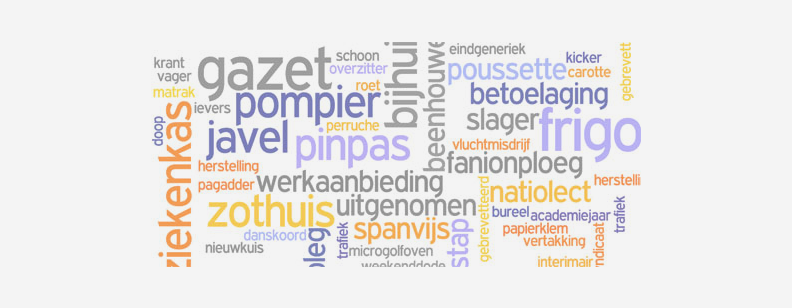The Dutch language comprises of many useless components, making it difficult and complex to use, according to research by linguist Sterre Leufkens. Dutch, compared to 21 non-European languages, including Bantawa, Samoan and Egyptian Arabic, has the most unnecessary grammatical elements and rules.
Dutch is complicated and long-winded according to survey. Take, for example, the difference between ‘de’ and ‘het’, both of which mean ‘the’ in English. When Dutch language was adopted in South Africa, the difference was soon replaced by ‘die’.
Dutch & Other Languages
It is surprising to know how many Dutch words are adapted from other languages. French were considered to be the experts at speaking Dutch in the world, which probably led to a lot of borrowings from French; such as paraplu (umbrella), bureau (desk or office), and horloge (wrist watch), among many others.
Large Jewish populations began in Holland during the Middle Ages which is why Dutch has almost equal in the number of borrowings from Hebrew. Jews established their own versions of the local language, Yiddish. It is also contributed to Dutch by process of linguistic osmosis.
Today most of the Hebrew words are part of the ‘street’ or slang language in Amsterdam, such as bajes (jail), jatten (to steal), and kapsones (arrogance).
Read Also: Dutch Language Translations
Dutch Words
There are three main aspects that make Dutch a curious language which makes it look very odd to English-speakers and even the speakers of most other languages.
To begin with Dutch is very hard to pronounce. Dutch has a many hard consonant sounds which can be very rough on the throat making enunciation difficult. When a person starts learning Dutch, it’s the throat usually starts to hurt as one tries chewing through words like Scheveningen.
For those who think German is a tough language to pronounce well, can stay calm because the Dutch hit those hard consonants even harder.
Nonetheless, those who already know Germany; it can be somewhat easy for them to learn Dutch. Although the difference between the two languages is unlimited enough that in World War II it would identify German spies by the way they pronounced Dutch words.
Dutch also contains some extremely long words. More than thirty letters isn’t uncommon, like their word for Chronic Fatigue Syndrome:
chronischevermoeidheidssyndroom. Where English uses three words, the Dutch simply have one giant word. These Dutch words are long, and have a lot of consonants, which can make it difficult to read and speak. Take slechtstschrijvend (worst writing) for example. After trying to learn and pronounce words with nine or more consonants in a row, you’ll need a BREAK.
Pointless elements in Dutch grammar include the multiple forms for verbs – hij loopt and wij lopen – and dual plurals like ‘ziektes’ and ‘ziekten’. There are also three different ways of combining words to create new ones. Leufkens suggests Dutch could have become so full of ‘historical junk’ because so few people have used Dutch as a second language. If a language is adopted en masse by people a more simplified version will emerge.
Are you looking for Dutch Translation? We are here for your assistance.



